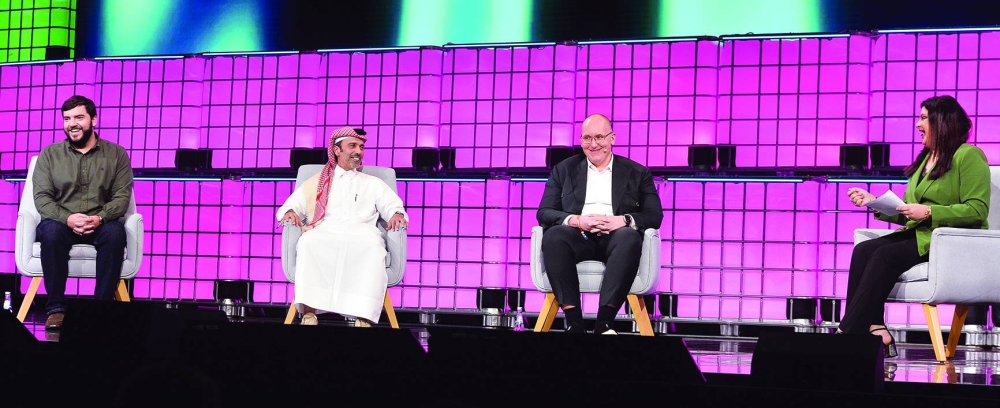Super apps can leverage local expertise by offering a diverse range of services that cater to the varied needs of customers, the top official of a homegrown popular delivery service stated during a panel discussion at Web Summit Qatar 2025’s Centre Stage.
Hamad al-Hajri, the founder and CEO of Snoonu, made the statement in the discussion of ‘Building the Global Super App’ with co-panellists Philipp Kandal, chief product officer of Grab, and Juan Pablo Ortega, co-founder and CEO of Yuno, who previously co-founded Rappi.
Al-Hajri explained that a super app’s unique advantage over other mobile applications is its ability to harness local expertise because they are designed to offer many services and solutions to specific customer needs.
When multiple functionalities are integrated into a single platform, al-Hajri further explained that super apps are thoroughly equipped to address diverse consumer demands while, at the same time, allowing for regional preferences and cultural nuances.
Al-Hajri highlighted that aside from delivery services, Snoonu is focused on addressing “hyper-local needs” including unique services like “fine dining” and “drive-through” options that cater to local preferences.
“We are the first to offer four different environments,” explained al-Hajri, adding that this localised approach both enhances user experience and fosters deeper customer loyalty because the services offered are tailored to resonate with the distinct lifestyles and requirements of the Qatari market.
He added: “As a super app, you’re going to always have a competitive advantage to solve local problems. And when you have a local champion, a successful story, you’re going to get support from both the customer and even your business partner.”
According to Ortega, Rappi’s growth was guided by user behaviour. He said, “We started as a delivery app of supermarkets and restaurants... and we started seeing that people order electronics, people order different things, and that’s kind of how we basically following user preference and we started adding more services.”
Asked about selecting which services to integrate, Kandal explained that Grab’s approach began with mobility before expanding to food delivery and financial services, among others.
Kandal said, “We served our drivers and our merchants, and allow them ultimately to have a better life by earning more. When we launched food, we saw that mobility services are primarily in the morning and peak in the evenings, but in the afternoon, the drivers are idle, so adding food has exactly opposite peak hours, so we can keep our drivers more busy across the entire day.”
Ends

(From left) Juan Pablo Ortega, co-founder and CEO of Yuno; Hamad al-Hajri, the founder and CEO of Snoonu; and Philipp Kandal, chief product officer of Grab, during the discussion of ‘Building the Global Super App’ at Web Summit Qatar 2025. PICTURE: Shaji Kayamkulam.

